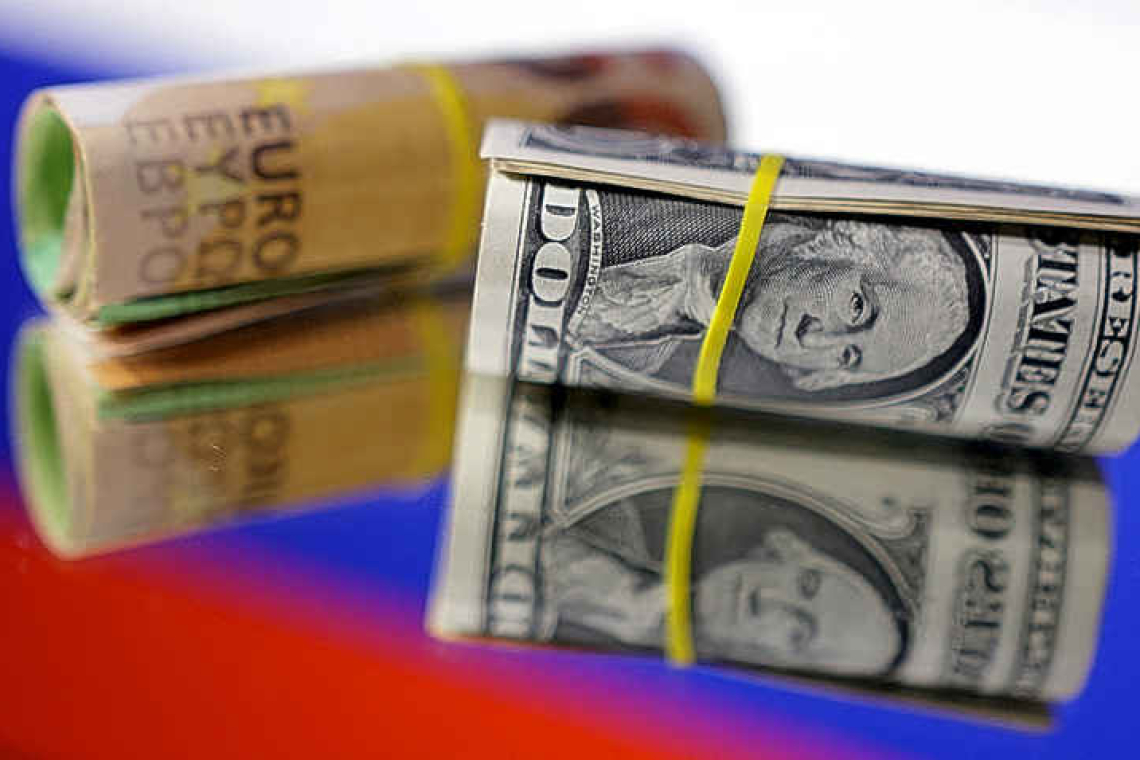LONDON--Around $2.3 billion in dollar and euro bills have been shipped to Russia since the United States and EU banned the export of their banknotes there in March 2022 following the invasion of Ukraine, according to customs data seen by Reuters. The previously unreported figures show Russia has managed to circumvent sanctions blocking cash imports, and suggest that dollars and euros remain useful tools for trade and travel even as Moscow strives to reduce its exposure to hard currencies. The customs data, obtained from a commercial supplier that records and compiles the information, shows cash was transported to Russia from countries including the UAE and Turkey, which have not imposed restrictions on trade with Russia. The country of origin for more than half the total was not stated in the records. The U.S. government in December threatened penalties for financial institutions that help Russia circumvent sanctions and has imposed sanctions on companies from third countries throughout 2023 and 2024. China's yuan has overtaken the greenback to become the most traded foreign currency in Moscow, although significant payment problems persist. Dmitry Polevoy, head of investment at Astra Asset Management in Russia, said many Russians still wanted foreign currency in cash for trips abroad, as well as small imports and domestic savings. "For individuals, the dollar is still a reliable currency," he told Reuters. Russia's central bank and the United States' sanctions authority, the Office of Foreign Assets Control (OFAC), did not respond to requests for comment. Russia started labelling the dollar and euro as "toxic" in 2022 as sweeping sanctions cut its access to the global financial system, hampering payments and trade. Around $300 billion of the Bank of Russia's foreign reserves in Europe have been frozen. A European Commission spokesperson said it could not comment on individual cases of sanctions application. The spokesperson said the European Union engages with third countries when it suspects that sanctions are being circumvented. The customs records cover March 2022 to December 2023 and Reuters could not access more recent data. The documents showed a surge in cash imports just prior to the invasion. Between November 2021 and February 2022, $18.9 billion in dollar and euro banknotes entered Russia, compared with just $17 million in the previous four months. Daniel Pickard, International Trade & National Security Practice Group Leader at U.S. law firm Buchanan Ingersoll & Rooney, said the pre-invasion spike in shipments suggested some Russians wanted to insulate themselves against possible sanctions. "While the U.S. and its allies have learned the importance of collective action in maximizing economic consequences, Russia has been learning how to avoid and mitigate those same consequences," Pickard said. He added that the data almost certainly understated actual currency flows. Russia's central bank quickly curtailed individuals' foreign currency cash withdrawals following the invasion of Ukraine, in a bid to support the weakening rouble. According to the data, just $98 million in dollar and euro banknotes left Russia between February 2022 and end-2023. Foreign currency inflows, by contrast, were far higher. The largest single declarant of foreign currency was a little-known company, Aero-Trade, that offers duty-free shopping services in airports and aboard flights. It declared around $1.5 billion in bills during that period. Aero-Trade registered 73 shipments of 20 million dollars or euros each, all of which were cleared at Moscow's Domodedovo airport, an international hub near the company's headquarters. The shipments were described in customs declarations as exchange or revenue from onboard trade. In most cases, Aero-Trade was only listed as declarant, the entity that prepares and submits customs documentation. Reuters could not identify Aero-Trade's clients and was unable to determine the source or destination of the cash. Aero-Trade owner Artem Martynyuk told Reuters he doubted the authenticity of the customs records. He declined to comment further. The company said in a statement that "Aero-Trade is not engaged in the supply of hard currency to Russia." According to the customs records, one shipment of 20 million euros handled by Aero-Trade was imported in February last year by Yves Rocher Vostok, a subsidiary of French cosmetics group Yves Rocher, which still operates dozens of stores in Russia. No country of origin or supplier name was listed in the data. Groupe Rocher, the parent company in France, said neither the group nor Yves Rocher Vostok had ever had any link with Aero-Trade or requested the transfer in question. "Yves Rocher Vostok, like all Groupe Rocher entities, complies by the law," a spokesperson for the group said. "It has never tried and will never try to bypass the sanctions on dollar and euro banknotes imports into Russia." More than a quarter of the $2.27 billion in banknotes was imported by banks, much of it in payment for precious metals, according to the customs records and a person familiar with the transactions.







